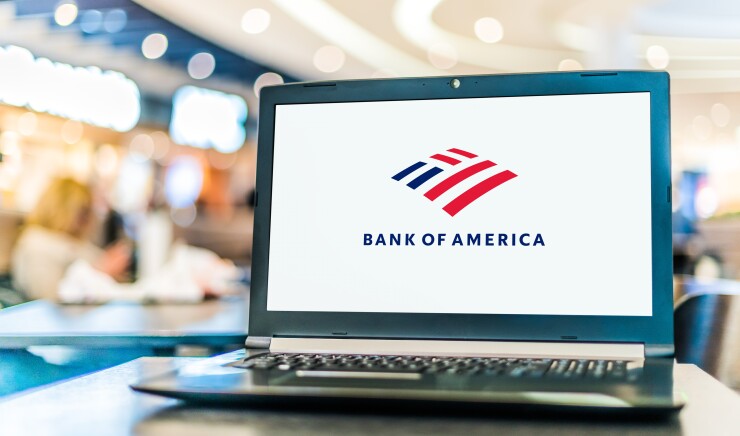A pair of former Bank of America traders' illicit
The Financial Industry Regulatory Authority, the broker-dealer industry's self-regulator, announced that it had imposed a $24 million fine on the Charlotte, North Carolina-based bank after two traders in its securities division were found to have manipulated the U.S. Treasuries market with hundreds of trades over the course of six years. The two employees behind the trades, the now-barred broker Tyler Forbes and his supervisor, Sidney Lebental, have both suffered legal consequences on their own for the so-called spoofing scheme. Lebental is separately among several plaintiffs who have filed suit in federal district court in Washington, D.C., questioning FINRA's basic right as a private organization to exercise regulatory authority over
Forbes was in his early 20s when he was fired from Bank of America over allegations that he had failed to observe the firm's trading policy. Authorities later accused him of running an illegal strategy meant to generate the appearance of high demand for Treasuries and boost the outcomes of his own trades. In one instance in May 2019, Forbes was alleged to have placed a phony order to buy $250 million worth of the bonds, thus helping to prop up the price of the $10 million worth of Treasuries he was really trying to sell.
All told, Forbes was accused of engaging in 194 spoof trades between January and June 2019. He
Forbes couldn't be reached for this article. His lawyer in both the FINRA and criminal cases, Richard Weinberg, of New York-based Morvillo Abramowitz Grand Iason & Anello, declined to comment.
Lebental, who supervised Forbes at the time of the market manipulation, was separately accused of 523 instances of spoofing between October 2013 and February 2021.
READ MORE:
A spokesperson for Bank of America, which neither admitted to nor denied FINRA's allegations, said in a statement: "This matter stems from the actions of two former employees. Over the past several years, we have made significant investments to enhance our controls, including improved surveillance, increased staff, additional training, and updated policies. We worked cooperatively with FINRA to resolve this matter."
Bill Singer, a securities industry lawyer and the author of the
"There should have been the suspension or the replacement of the chief compliance officer," he said.
This isn't the first time spoofing allegations have been leveled against a cornerstone firm of the U.S. banking system. In September 2020, the Commodities Futures Trading Commission imposed
In imposing the $24 million fine on Bank of America, FINRA faulted the firm for not having an adequate system in place to detect spoofing in U.S. Treasuries. The agency had no supervisory system in place until November 2015. And then, when it did install one, it was set up only to detect market manipulation committed by algorithms, not manual trades. That deficiency, according to FINRA, was not corrected until mid-2019.
READ MORE:
FINRA also said Bank of America's detection system was not set up to send up red flags for trades entered in external venues.
"Spoofing undermines the transparency and integrity of the markets by distorting the true nature of supply and demand," Bill St. Louis, FINRA executive vice president and head of enforcement, said in a statement. "Spoofing is especially detrimental in the U.S. Treasury securities market, given its status as a benchmark for countless financial instruments and transactions."
Both Forbes and Lebental had worked for Bank of America's Merrill Lynch securities subsidiary before it was turned into Bank of America Securities in 2019. Forbes joined the firm in 2018. Lebental, who has 12 years of experience, started at Deutsche Bank Securities in New York in 2008.






